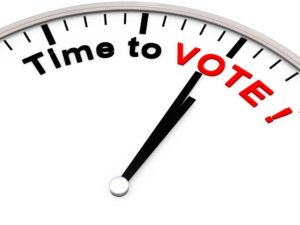As we turn the corner into a brand new year, there are many new laws that Illinois has enacted which will impact the employment law landscape. These new laws will change many of the things that might have been taken for granted or not even been on the radar of most employers and employees. As your trusted legal advisor when it comes to the keeping you at the forefront of the legislative developments, we have compiled a quick synopsis of how things are going to change in 2019.
- Changes to the Illinois Human Rights Act: The Illinois Human Rights Act is the set of laws and remedies for individuals who believe they may have been discriminated by their employer. Illinois employees now have up to 300 days to file a Charge of Discrimination with the Illinois Department of Human Rights (“IDHR”). (Previously, Illinois employees only had 180 days to file their Charge with IDHR. Under Federal law however, an employee in Illinois can file a Charge of discrimination with the EEOC. These different time frames created confusion since some Charges may have carried both state and federal law violations and some only covered state law violations. Now the timeframes are aligned and the right to bring a Charge of discrimination under Illinois state law has been expanded.
There are also changes coming to the Illinois Human Rights Commission. This body is where claims may be prosecuted after a Charge cannot be successfully resolved at the IDHR. Typically, there was a huge backlog in getting claims processed, often taking upwards of 5 years to complete. Effective January 1, 2019, the IHRC will be hiring seven full time commissioners to tackle the workload as opposed to the 13 part time commissioners currently overburdened in the system. Hopefully this will increase the speed in which claims are heard and ultimately disposed of.
Possible future changes with a new Governor coming in:
Governor Rauner vetoed a bill which would lower the minimum employee threshold, making an employer with only 1 employee subject to all antidiscrimination laws under the IHRA. (Currently only the prohibition on sexual harassment, pregnancy discrimination and disability discrimination apply to employers of one employee.) There is also movement afoot to change who is covered under the antidiscrimination laws that the state protects by expanding the definition of an “employee” to now cover independent contractors, vendors and consultants and any other person providing services pursuant to a contract. Finally, there is talk (due to the #MeToo movement) of expanding the time in which an employee can bring a claim of sexual harassment 2 years to file a Charge with the IDHR. As always, we will continue to monitor all these developments and let you know if any of these changes come to fruition.
- Expanded Protections for Nursing Mothers: Illinois recently amended the “Illinois Nursing Mothers in the Workplace Act” which was originally passed in 2001. Under the previous version of the law, employers who had 5 or more employees were required to provide unpaid break time to an employee who needed to express breast milk for her nursing infant child. The new amendment to the Act now provides for the following:
- Eliminate the previous requirement that lactation breaks run concurrent to breaks already provided by the employer;
- Prohibit employers from reducing pay during lactation breaks;
- Require employers to provide break time for mothers to nurse; and
- Employers must provide lactation breaks for up to a year after a child’s birth unless providing these breaks would cause an “undue hardship.
Employers should review and revise as necessary company policies providing nursing mothers reasonable paid break time for lactation purposes and a convenient location (other than a toilet stall) to privately nurse a baby. Employers should also budget appropriately for additional pay that may be required to provide paid break time for nursing mothers.
- Changes to the Illinois Equal Pay Act: The Illinois Equal Pay Act was put n place in 2003 and prohibits employers from paying men and women different rates of pay for similar work. Effective January 1, 2019, the Act’s protections will be expanded to African American workers and will prohibit employers from paying African American employees less than others. African American employees can not be paid less for performing the same or substantially similar work, on jobs that require equal skill, effort and responsibility, and for work performed under similar working conditions. The Act retained the provisions that recognize the wage differentials pursuant to a seniority system, merit system, a system that measures earnings by quality or quality of production, or any other wage differential based on any factor other than race or one that would constitute unlawful discrimination.
- Employee Expense Reimbursement Now Mandated Under the Illinois Wage Payment and Collection Act: Effective January 1, 2019, Illinois will join 8 other states in imposing a statutory requirement for employers to reimburse employees for certain business expenses incurred. The new amendment requires employers to reimburse all “necessary expenditures… incurred by the employee within the employee’s scope of employment and directly related to services performed by the employer.” “Necessary expenditures” has been defined to include all reasonable expenditures required of the employee in the discharge of employment duties and that inure to the primary benefit of the employer. The new law allows employers to provide for more than 30 days to submit appropriate supporting documentation if the employer has a written policy. The new law does not apply to an employer that has a written expense reimbursement policy if the employee does not comply with the policy. Further, the new law states that an employer will not be liable to an employee if the employer did not authorize or require the expenditure.
Examples of potential business related expenses could include:
- Work related mileage for employees who drive within the scope of their employment (excluding regular commuting);
- Use of personal cell phones for work related purposes;
- Home internet or other home office expenses for employees who work from home (even occasionally); and
- Costs associated with work related travel, training or conferences.
The bottom line for Illinois employers is that they should at least establish or update expense reimbursement policies to cover at least the following items:
a. The types of expenses that are reimburseable;
b. The amount or proportion of the expense eligible for reimbursement;
c. Type of documentary evidence (receipts, invoices, etc.) required; and
d. Time period to submit supporting document.
- Expanded Job Protection for Military Service Members: Effective January 1, 2019, the rights of Illinois employees serving in the military will be governed by the new Illinois Service Member Employment and Reemployment Rights Act (“ISERRA”). The New Act repeals Illinois’ Military Leave of Absence Act, Public Employee Armed Services Rights Act, The Municipal Employees Military Active Duty Act, and Local Government Employees Benefits Continuation Act. The new Act leaves intact the Illinois Family Military Leave Act, which provides family members of a service member with up to 15 or up to 30 days of unpaid leave, depending on the employer’s size, when that service member is called into military service lasting more than 30 days. Much of the new Illinois Act is modeled directly from the Federal Uniformed Services Employment and Reemployment Rights Act of 1994.
While there are many nuances in the new law, one important requirement employers must take into account deals with the special treatment for performance reviews. Under ISERRA, a service member who is absent on military leave must be credited with the average of his or her performance ratings or evaluations received over 3 years preceding the leave, but in no case can the average be less than the rating the employee received for the last rating period preceding his or her leave. An employee has a right to pa private cause of action or the matter may be prosecuted by the State Attorney General and expressly negates any applicable statute of limitations. In addition to actual damages, ISERRA also authorizes the recovery of attorneys fees and up to $50,000.00 in punitive damages to a prevailing plaintiff.
- New Law for Illinois Hospitals and Health Care Facilities: Effective January 1, 2019, the Illinois Health Care Violence Protection Act places new responsibilities on Illinois hospitals and health Care facilities. This new law is designed to address the risks of violence against nurses and other health care workers. Illinois hospitals and health care facilities will now be required to provide workplace violence training and related safety requirements for their employees. Health care workers who contact law enforcement or file a police report with law enforcement because of workplace violence shall be required to provide notice to management of the health care provider within 3 days of contact with law enforcement. Employers are then required to offer immediate post-incident services for any health care worker directly involved in a workplace violence incident caused by patients or their visitors. Services shall include, at a minimum, acute treatment as well as access to psychological evaluation.
As you can see, there are a number of new laws passed over the course of the last year taking effect which can dramatically effect the employment relationship. Only a law firm that concentrates in employment related matters can help guide you through this minefield. With over 34 years’ experience in advising employers and employees on workplace issues, let Boznos Law work with you to ensure you are ready to meet the challenges posed by the changes to the employment laws. Call Bill Boznos today at (630) 375-1958 or contact us at www.boznoslawoffice.com/contact-us through our website.



